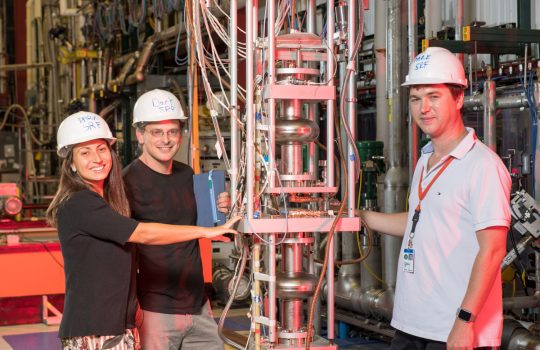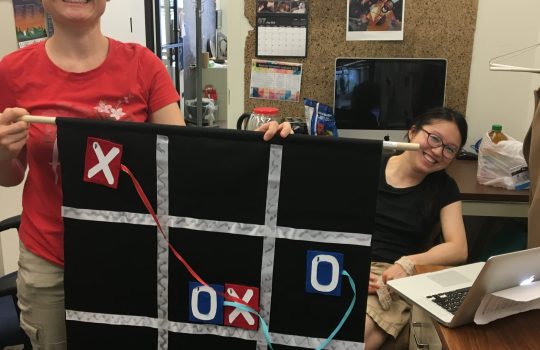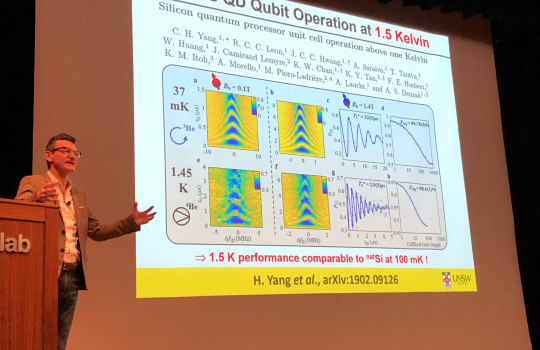Feds pick Argonne, Fermi to lead quantum computing research centers
- quantum computing
- quantum information science
- quantum science
- SQMS Center
- Superconducting Quantum Materials and Systems Center
From Crain’s Chicago Business, Aug. 26, 2020: Chicago’s two national laboratories, Fermilab and Argonne, have been picked to lead national research centers for quantum computing that will receive $115 million each over the next five years. Fermilab will lead the Superconducting Quantum
Materials and Systems Center, which will take on one of the main problems of quantum technology: the length of time that a qubit, the basic element of a quantum computer, can maintain information.




